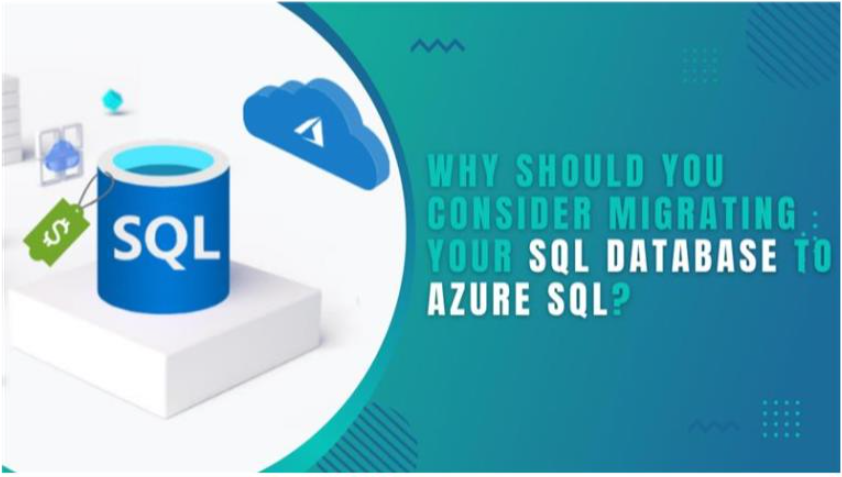Cloud service is the best option.
Though 98% of companies use their hardware systems to store and process the data, the majority of companies are now migrating to cloud services, especially after the pandemic. According to the survey, 50% of companies are ready to spend on cloud services to maintain the IT infrastructure. Migration of SQL database to the Azure is one of the technologies adapted by many organizations.
What is Azure SQL Database?
It’s a flagship product of Microsoft in the database area. The relational database supports structures like JSON, XML and spatial. The Azure platform is safe and assured of no data loss, which fully manages the Azure SQL database. It is always running on the latest stable version of the SQL Server database engine. For your business, you can create a highly available and high-performance data server layer for the application, which enables you to process-relational and non-relational databases.
Ready to experience the full power of cloud technology?
Our cloud experts will speed up cloud deployment, and make your business more efficient.
Why migrate SQL server database to Azure SQL Database?
Considering certain facts that are driving widespread adoption of the azure cloud model.
- Cost Saving: The most promising advantage of the Azure SQL database is that you no longer need to invest heavily in high-priced on-site hardware; instead, the costume of the azure database can be treated as an ongoing operating expense. This helps in budgeting as well as cash flow; you don’t need to be concerned about replacement depreciation and other financial worries surrounding capital assets.
- Boosts scalability and performance: It is a highly scalable and flexible model; by design, far from on-site hardware, we can rapidly spin up additional instances to harbour traffic spikes, seasonal flows, etc.
- High Security: Boosted by a network firewall and other safeguards, it is widely considered secured for development and production environments.
- Get rid of networking, handling failovers, and capacity planning.
- Business Continuity and Disaster Recovery: Before moving the database entirely to the cloud, Azure has two trending tools, ASR and Azure backup, which support the cloud to fully protect the on-site execution from downtime and data loss.
Conclusion
In a nutshell, migration of data to the Azure cloud is a call of an hour. Azure cloud Database provides smart performance based on learned usage patterns and data security.
Azure SQL Database managed instances provide friction-less, secure migration of apps from on-premises to the cloud and access to the Azure Resource Manager API for dynamic provisioning, all without the need to pay for additional hardware for businesses looking to modernize their data pipeline.








